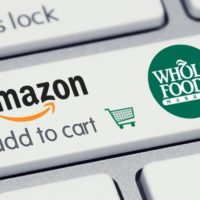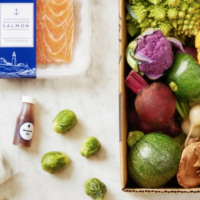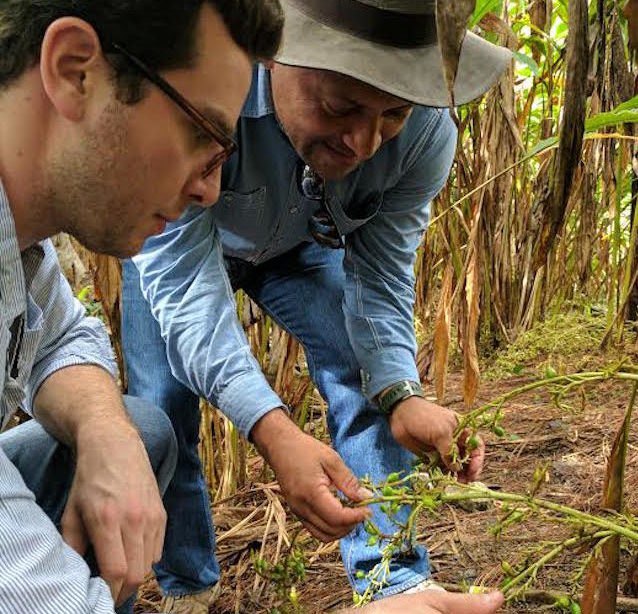
While eater demand for local, sustainable and organic food has grown, spices are often an after thought. As a result, the spice industry remains rooted in opaque practices that value neither fair labor practices or sustainability.
Burlap & Barrel wants to change that through its single origin spice e-commerce platform. In additional to focusing on environmental sustainability, Burlap is committed to improving the welfare of smallholder spice farmers who are typically shortchanged in standard international supply chains. By sourcing directly from farmers and cooperatives, and bypassing middleman, Burlap & Barrel is able to offer exceptional artisan-cultivated spices to passionate chefs, food manufacturers and home cooks, while increasing farmers’ margins. I’ve tried Burlap’s spices, and they are the best spices I’ve ever tasted.
As we get ready for FoodBytes! NYC, the premiere food startup pitch competition taking place in New York City on June 15, I spoke with Burlap & Barrel CEO Ethan Frisch, who will be pitching at the event, about Burlap’s business model and the challenges of creating a transparent supply chain.
Want to see Burlap and 19 other game-changing food and ag startups pitch? Snag your ticket to FoodBytes! NYC on Thursday, June 15 for 20% off with the code FTC HERE!
__________________

Danielle Gould: What inspired you to launch Burlap & Barrel?
Ethan Frisch: The spice trade is ancient, exploitative, opaque and inefficient; it undervalues the farmer’s expertise and delivers stale, low-quality spices to American cooks. As both a former chef and former international aid worker, I knew if I wanted to bring my professional interests together, I was going to have to do it myself. I spent a year examining international markets looking for an opportunity with significant demand, global potential for positive impact, and a particular unmet need that I could address. Spices more than any other agricultural product represent enormous political and economic disconnects: between high perceived value and the poverty of the people who grow them, between celebrating ingredients and dismissing the cuisines that use them, between appreciating flavors and ignoring the centuries of knowledge and labor that created them.
DG: Why does the international spice supply chain need to be redesigned?
EF: The international spice trade is still, even in 2017, structured around centuries-old systems of colonialism that value Western middlemen more highly than the deep expertise of farmers whose families have been growing spices for generations. Not only do the layers of middlemen drive down revenue for smallholder farmers while driving up prices for consumers, but they lengthen the time it takes for spices to travel from the farm to our kitchens, which means our spices are stale even before they sit in a kitchen cupboard for three years. Under the current system, everyone loses except the middlemen. We’re here to change that.
DG: How is Burlap reimaging the international spice supply chain?
EF: Our egalitarian model recognizes that farmers are the true drivers of quality. By working with them and sourcing from them directly, we have access to heirloom spice varieties that are fresher and more flavorful than what’s otherwise available in the U.S. A greater appreciation for the flavor and health benefits of spices is growing rapidly among American consumers, and they’re seeking education and inspiration about how to use more spices in their own cooking. We’re bringing the two ends of the supply chain together, connecting artisan farmers in Egypt, Tanzania, Guatemala, Turkey, Indonesia, Afghanistan, Spain and elsewhere directly to American cooks through their ingredients.
DG: How does your service work? How does your business help farmers?
EF: We identify partner farms around the world growing unique, exceptional spices with a respect for environmental values and fair labor practices. We help with FDA registration and other requirements to export to the United States, and we buy the spices with a transparent pricing model that encourages farmers to make more money off of their crops. Smallholder farmers in developing countries live with a significant amount of risk; when they plant at the beginning of the season, they don’t know what value their crops will have by harvest time. We help mitigate that risk by guaranteeing a buyer for the spices they grow, allowing them to plan further into the future and establish longer-term financial stability for their families and communities.
DG: How did you create your spice supply chain?
EF: Our networks within NGOs around the world have connected us with excellent partner farmers who share our values and appreciate our innovative approach to the spice trade. Many of our partner farmers have made similar efforts locally, organizing their neighbors into cooperatives or consolidating the supply chain themselves. Everything about establishing our supply chains has been challenging: finding farms growing spices that met our high standards, building personal and professional relationships with farmers in 8 different countries despite linguistic and cultural differences, figuring out export processes for each country, and import requirements to bring those spices into the US. On any given day, I’ll be on the phone with our partner in Guatemala, texting with our partner in Afghanistan, and Skyping with our partner in Egypt. We’re in touch almost constantly, sharing updates about a new restaurant or potential deal and talking about the recent rain and its impact on the new harvest. I travel as often as possible, as much to maintain our current relationships as to build new ones, staying with our partners in their homes, getting to know their families, and learning as much as I can about their lives.
DG: Who are your customers? How many customers do you have, and what is your month over month growth?
EF: At the moment our customers are mostly small food businesses like restaurants and artisanal food and beverage manufacturers. We supply a few independent spice shops around the country, and run a small but growing direct-to-consumer business through our website. We’re also launching stalls at several farmer’s markets around New York City this summer. Our spices are on the menu at about 20 restaurants in New York City, and can be found in products like Happy Healthy Human snacks, Wim Yogurt and other new consumer packaged goods. We’re entering the natural cosmetics space as an ingredient supplier, working with companies using spices for skin and hair treatments. Growth is difficult to measure since we’re moving in so many different directs at once but suffice it to say that in our eighth month, we have a lot more going on than we could have hoped.
DG: How does your pricing compare to your competitors?
EF: By cutting out the middlemen and working directly with farmers, we can charge American consumers less for higher quality spices, and still pay farmers more than they would get from other companies. At this early stage in the company’s growth, we’re working in small quantities and shipping by air, so our costs are higher than they should be. Even so, our prices are competitive with the premium spice resellers, and as we scale, we will be able to bring our prices down to compete with commodity spice brands.
DG: What is your gross margin?
EF: We’re working in several different verticals, and our margins vary depending on the industry standard in each, which can range widely between bulk sales to restaurants and manufacturers, direct-to-consumer retail sales, and ingredient supplies to natural cosmetics companies. We’ve been the recipients of the incredibly generous advice of very experienced spice industry professionals who have mentored us and supported the business from its earliest days, as well as from leaders in comparable categories like coffee and cacao. They have helped us craft a financial structure that is in line with the industry and will be able to support our growth.
DG: What are the biggest challenges you’ve faced, and how have you overcome them?
EF: Everything is challenging. Other entrepreneurs talk about breakthroughs and the excitement of stepping up to the big challenge, but for better or worse that hasn’t been my experience at all. Every day is a hundred tiny pivots, dozens of irrelevant, incremental decisions that collectively lead the company in a direction I’m satisfied with. Nine months ago, I didn’t know a thing about cinnamon tree botany, or U.S. customs regulations, or the intricacies of the international grading standards for cardamom; now I do. I overcome challenges by looking right at them, finding toeholds, talking to people who know more than I do, reading a lot, arguing with people whose opinions I trust, trying things, making mistakes, trying other things, laughing at myself, and then doing it all again an hour later.
DG: How much capital have you raised to date and from whom?
EF: We’ve been 100 percent bootstrapped, growing carefully and frugally and reinvesting the business’ revenue into growth and refinement.
DG: Why are you participating in FoodBytes!?
EF: I’ve been a member of Food+Tech Connect since 2014 and have always appreciated the ambitious, innovative people I’ve met and awesome connections I’ve made. I’m really looking forward to connecting with other startups to see how we can help and support each other, and with industry leaders who can help guide Burlap & Barrel’s growth and impact.
Want to see Burlap and 19 other game-changing food and ag startups pitch? Snag your ticket to FoodBytes! NYC on Thursday, June 15 for 20% off with the code FTC HERE!
Related Posts
 $10B Invested in AgriFood Tech, Amazon Commits to $22B in Future Food Purchases, Ancient Nutrition Secures $103M + More
$10B Invested in AgriFood Tech, Amazon Commits to $22B in Future Food Purchases, Ancient Nutrition Secures $103M + More Amazon Takes On Fedex and UPS, Trump Replaces SNAP with Blue Apron Model, Instacart Raises $200M + More
Amazon Takes On Fedex and UPS, Trump Replaces SNAP with Blue Apron Model, Instacart Raises $200M + More Walmart Named Logical Blue Apron Buyer, Humane Society CEO Resigns Amid Sexual Harassment Allegations + More
Walmart Named Logical Blue Apron Buyer, Humane Society CEO Resigns Amid Sexual Harassment Allegations + More



